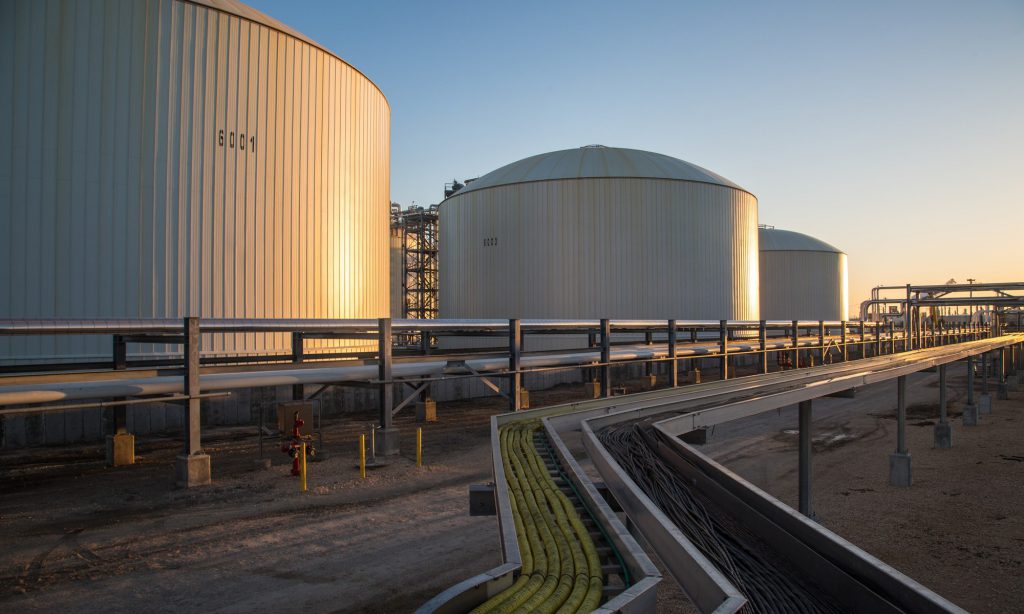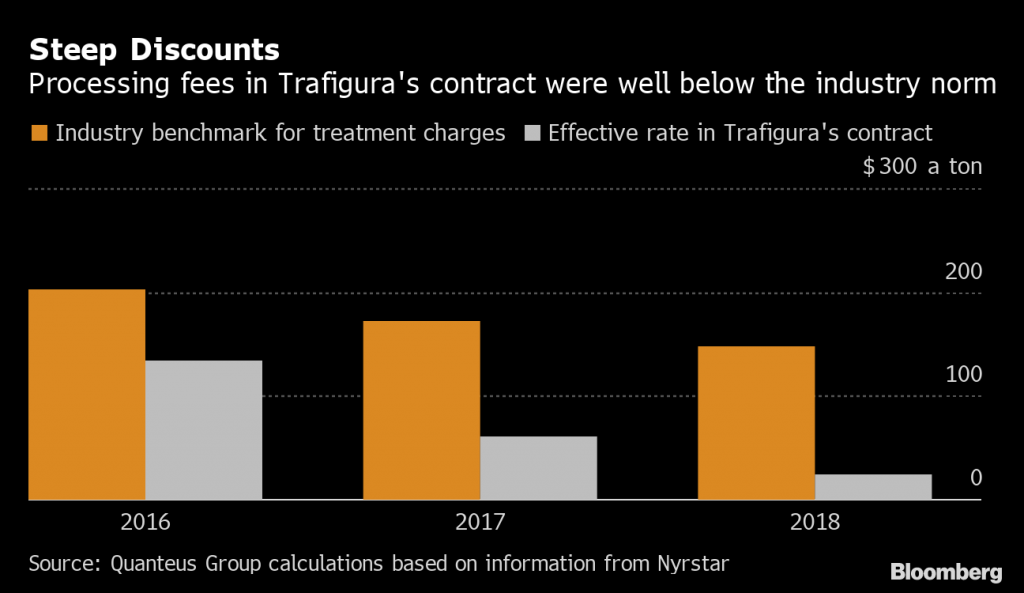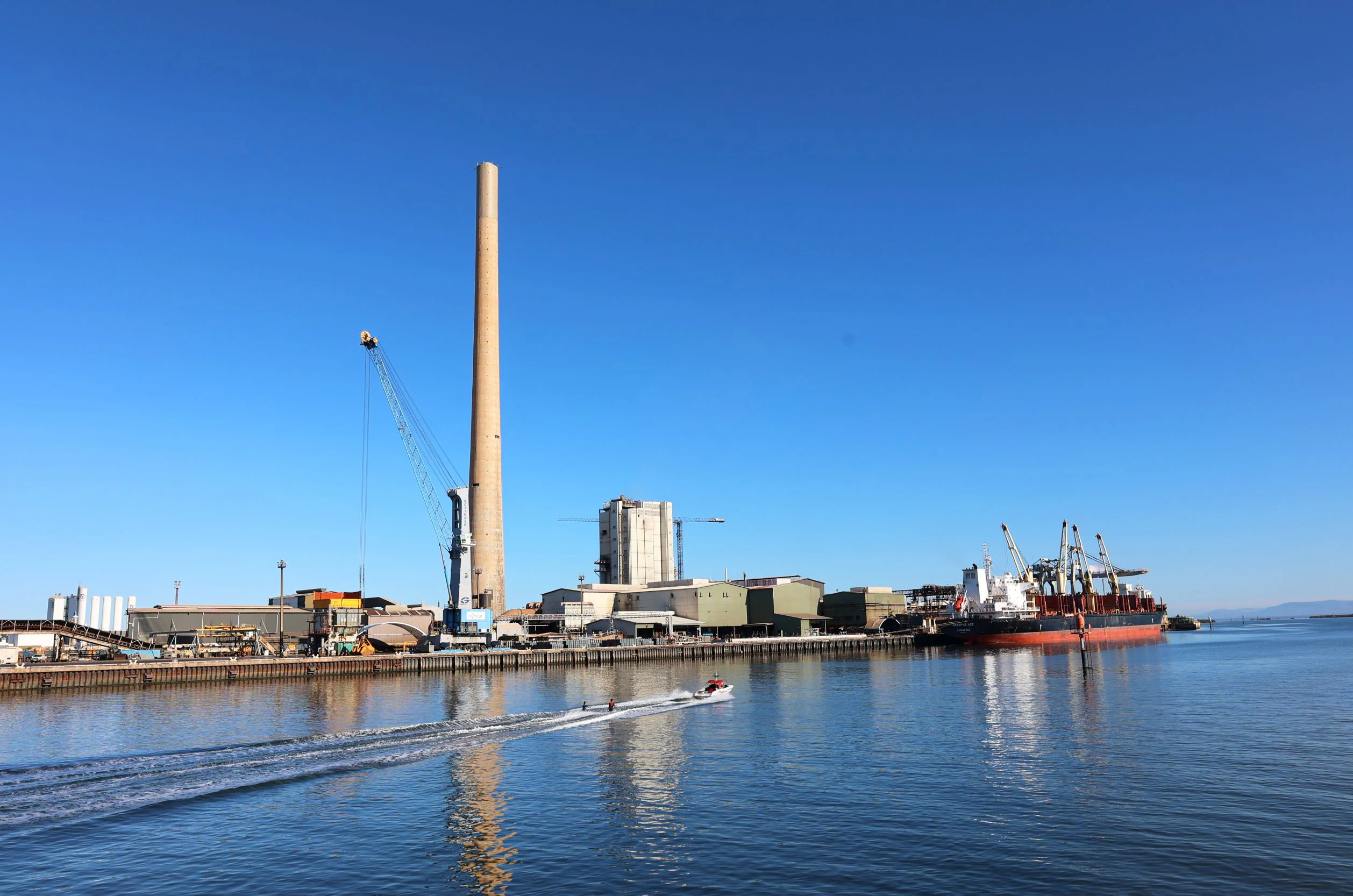Trafigura accused of throttling Nyrstar with lopsided zinc deals

Commodities trader Trafigura Group Ltd. used its influence at Nyrstar NV, one of the world’s biggest zinc refiners, to undermine the company and unfairly enrich itself, a group of Nyrstar shareholders has alleged.
Through its sway on the board and management committee, Trafigura was able to negotiate lopsided contracts that effectively drained cash from Nyrstar since 2016, contributing to the company’s collapse, the shareholders said in a recent lawsuit in Belgium.
“Nyrstar has defended itself in open court against the unsubstantiated allegations made by a small group of shareholders,” said Benoit Allemeersch, a lawyer representing the company in Belgian court. “These claims are nothing new and entirely incorrect.”
A spokeswoman for Trafigura, the second-biggest oil and metals trader, declined to comment.
The shareholders say Trafigura’s influence resulted in Nyrstar’s senior executives entering into commercial agreements that were disadvantageous
Documents related to the case, which include contracts between Nyrstar and Trafigura and an analysis by one of the shareholders, shed light on the complex relationship between the two companies. Before a debt restructuring this year that led to Trafigura taking control of Nyrstar’s assets, the privately held trading house was the company’s biggest shareholder, as well as its main supplier and customer.
The nature of the commercial agreements between Nyrstar and Trafigura has long been the subject of speculation among insiders in the metals industry, but until now the exact details have been unknown.
The shareholders say Trafigura’s influence resulted in Nyrstar’s senior executives entering into commercial agreements that were disadvantageous, compounding the strain on its balance sheet caused by a heavy debt load and adverse conditions in the zinc market.
The contracts “confirmed our main suspicion, which was that Trafigura was in a position to exploit or make an abuse of its economic control,” said Laurent Arnauts, a lawyer who said he’s representing about 100 Nyrstar investors.
‘Material errors’
The statements made by the shareholders contain “a lot of material errors and simple insinuations,” according to Nyrstar lawyer Allemeersch.
While commodities merchants often have close commercial ties with producers, senior metals traders who viewed the agreements and were unconnected to the shareholder lawsuit said the terms were unusually onerous for Nyrstar and favorable to Trafigura. The deals also raise questions about Trafigura’s level of influence at the company.
The top issues raised by the shareholders’ group relate to steep commercial discounts given to Trafigura and certain clauses the shareholders say give it preference. In the supply deal for semi-refined ores known as concentrates, Nyrstar accepted processing fees that were far below prevailing industry rates, putting operating margins under strain, according to an analysis by Kris Vansanten, a shareholder and founder of Quanteus Group.
“A smelter every year fights for every dollar he can get per ton of zinc. Reducing that significantly with Trafigura is at the least very, very strange,” said Julien De Wilde, a former Nyrstar chairman who left the company in 2016 as Trafigura brought in its slate of directors.
A contract that allowed Trafigura to buy finished metal at a significant discount to prevailing spot-market rates also appears to have put Trafigura at an uncommon advantage, one person familiar with Nyrstar’s prior commercial arrangements said.
In June, Nyrstar’s chief Hilmar Rode said in a call with investors that the terms reflected market conditions, as well as the company’s weakened financial state and need for additional investment, which Trafigura provided. Without the rights issue, Nyrstar could have faced insolvency, Rode said.
“There were very stark choices at that time,” he said, according to a transcript of the call.

The Quanteus report also highlighted parts of the contracts that it says gave Trafigura the upper hand. For example, clauses that allowed the trading house to cancel the deal and gave it the first right of refusal of metal volumes in certain cases. The agreement also set out circumstances in which Trafigura could withhold large quantities of metal from Nyrstar.
“If you look at the investment case on the website of Nyrstar, it says our financial agreements are supportive for the investment case, but the reality was quite different,” Vansanten said by phone from Brussels.
Nyrstar’s downfall
To be sure, Nyrstar’s history of financial troubles dates back to around 2010, when management embarked on a debt-fueled run of mining acquisitions. As zinc prices plummeted 26% in 2018, the company started bleeding cash and it became clear that it wouldn’t be able to make a bond repayment. Nyrstar has said asset writedowns, “severe deterioration” in the global economy and lower zinc treatment charges were among the reasons for its collapse.
The court case led by shareholders — angry about the 97% plunge in Nyrstar’s share price since the start of 2018 — is one of many headaches facing Trafigura. In the debt restructuring announced in April, Trafigura said it would infuse the company with fresh cash and stabilize operations, while other shareholders were awarded 2% of the reorganized group.
Court battle
The shareholder group won a court decision to postpone a vote on Nyrstar’s accounts, and is preparing to file broader proceedings to pursue damages, Arnauts said. Nyrstar’s lawyer Allemeersch said the Belgian court dismissed other claims made by the group.
“If further claims are filed, we’ll fully and forcefully defend them in court,” said Allemeersch.
Another part of the shareholder allegations is that Nyrstar’s executive chairman, Martyn Konig, may not have acted impartially in an earlier role as an independent director. Konig also serves as a consultant adviser to T Wealth, the family office that manages investments for Trafigura’s senior executives. Before joining the Nyrstar board, he was chief investment officer of T Wealth.
“I have no other relationship with Trafigura and T Wealth is completely independent from Trafigura,” Konig said in a Q&A with investors in June.
The issues now threaten to bring further scrutiny of Trafigura’s role in the management of the company, as well as the opaque world of commodities deals. In June, the trading house was criticized by Iceberg Research, the short seller that targeted Noble Group before its collapse, over how it values some assets. Trafigura said at the time that it’s always followed a “conservative approach.”
The big contract
Trafigura signed the long-term sales and purchase agreements with Nyrstar in 2015, putting it in a position to supply about a quarter of the company’s raw-material needs and buy more than a third of its metal output. Historically, the size of the metal offtake contract made it one of the industry’s biggest and most coveted trophies — a prize previously handled by Noble Group Ltd. and Glencore Plc.
Trafigura has consistently said that it invested in Nyrstar because of its positive view of the zinc market and supported the company’s strategic plans. In the June call with investors, Nyrstar CEO Rode said decisions about the zinc offtake agreement were made independently.
“Nyrstar was not in a strong position at the end of 2015,” said Rode, who plans to leave the company at the end of this month.
“The board did the best possible negotiation to achieve an arm’s length result,” he said. “Arm’s length in terms of a negotiation is something that also represents the relative strengths of the counterparties.”
Rode also pointed to improvements in Nyrstar’s performance in 2018 from 2017, saying the company was able to stabilize its debt levels. But in the end, he said the company was blindsided by the sharp decline in zinc prices.
(By Andy Hoffman and Mark Burton)
More News
{{ commodity.name }}
{{ post.title }}
{{ post.date }}




Comments